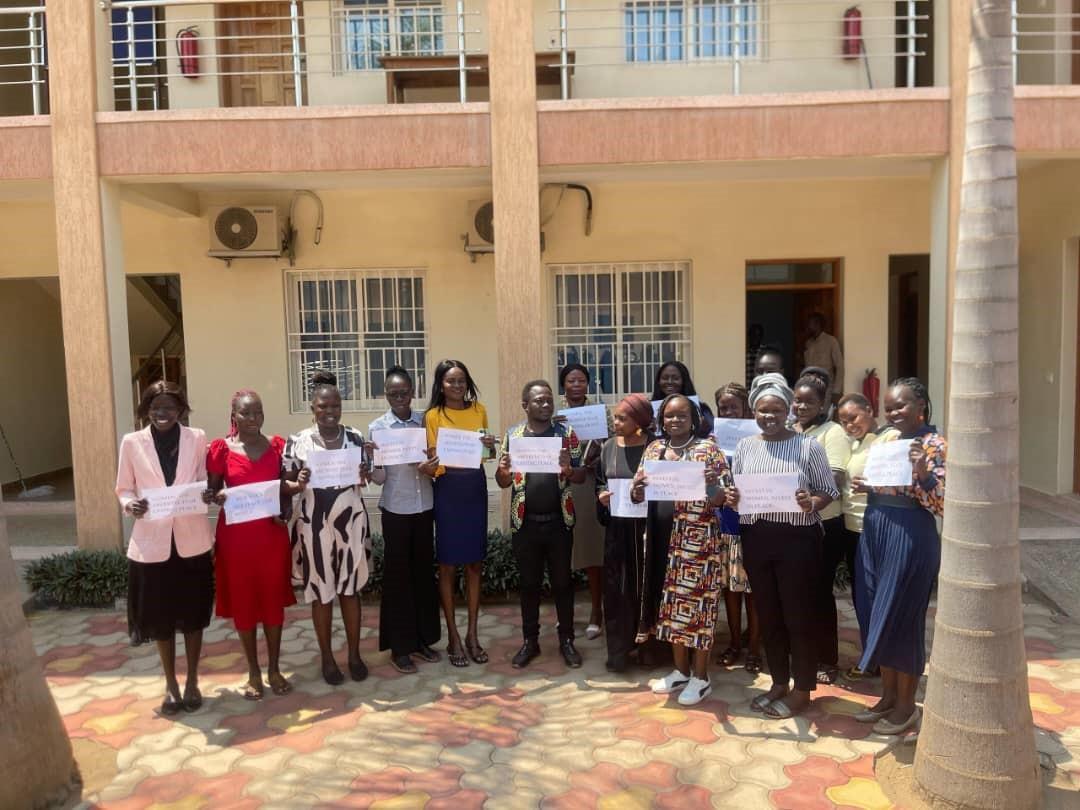Africa-Press – South-Sudan. A local women’s rights organization in Juba is taking proactive steps to empower women at the grassroots level, forming community-based groups to raise awareness about their legal rights, particularly concerning land ownership and leadership roles.
This initiative comes amidst ongoing challenges posed by legal confusion and weak enforcement of existing laws.
Drabuga Dorothy Ambrose, Executive Director of the Women Foundation for Humanity, explains that the program aims to transform women into agents of change within their communities.
Her organization has successfully established ten “Community Women, Land Rights and Leadership Forum Groups,” reaching approximately 140 women.
“In Juba here we formed about 10 women groups, and these groups are known as community women, land rights and leadership forum groups. We reached about 140 women, and of course, these women in these groups are acting as change agents,” Dorothy stated.
“They do sensitise those other sisters who are not in the group so that they get to know some of the legal frameworks in the country that protect their rights.”
Navigating Legal Confusion: Customary vs. Statutory Law
A significant hurdle, Dorothy notes, is the pervasive legal confusion caused by the overlapping customary and statutory law systems in South Sudan.
“You know, we have two laws in the country. We have the customary law and the statutory law. This brings a lot of confusion to South Sudan. You realize that these customary laws tend to override the statutory law,” she explained, highlighting how this often undermines women’s legal protections.
The issue of land tenure security is currently before Parliament, with the National Land Policy Bill having recently passed its first reading, signaling a potential step towards addressing some of these complexities.
Legal Frameworks and Enforcement Challenges
Despite the challenges, South Sudan has made strides in ratifying international instruments that promote women’s equality.
The country ratified the UN Convention on the Elimination of All Forms of Discrimination Against Women (CEDAW) in September 2014, and in February 2023, President Salva Kiir signed the Maputo Protocol into law, officially launched in July 2023.
Legal experts affirm that national laws, including the 2011 Transitional Constitution (amended Article 16) and the Land Act, explicitly support women’s right to own property, whether through purchase or inheritance.
Advocate Monyluak Aguer Rou-Rou, speaking on Eye Radio’s “Under the Tree” program, reiterated this legal backing: “The Maputo Protocol spoke about the right of women in particular in Article 15 and Article 9, the right to own a piece of land or any movable property, whether it is a legal right or inherited.
According to the laws in South Sudan, especially the 2011 Interim Constitution, amended Article 16, speaks about the right of women.
The constitution in South Sudan gives women the right to own property through purchase or inheritance, and the Land Law in South Sudan also provides the same right for women to own a piece of land.”
However, despite these legal provisions, enforcement remains weak, leading to real-world struggles for women.
Mary’s Story: A Glimpse into the Struggle
Mary, a woman from Jebel Yesua, shared her distressing experience with land ownership, a poignant example of the systemic issues.
She recounted how the local land committee issued the same token for her plot to four different people, three of whom were men.
“The community administration that distributes land gave the code for the land I own to another person. I have been moving from court to court without finding anyone to help me,” Mary lamented.
“Currently, we are three men who own the same Token for the land, and I am the woman. I am the one who lives there, and I am the one who cleaned and cut the trees and weeds from the land, and I built it and live in it.”
The judge says that the ownership of the land belongs to the owner of the documents. I took my document, and the court ruled that I must reconcile with one of these three men. I was the one who lived first on the land. The judge told me that I have no right because I do not have documents.”
Mary’s story is one of many that underscores the pressing need for legal clarity, accessible justice, and robust enforcement of women’s rights in South Sudan.
Women’s rights advocates continue to call for the domestication of international treaties, clear land governance systems, and meaningful access to justice for all women, particularly in rural areas where customary practices often dominate and undermine statutory protections.
For More News And Analysis About South-Sudan Follow Africa-Press






